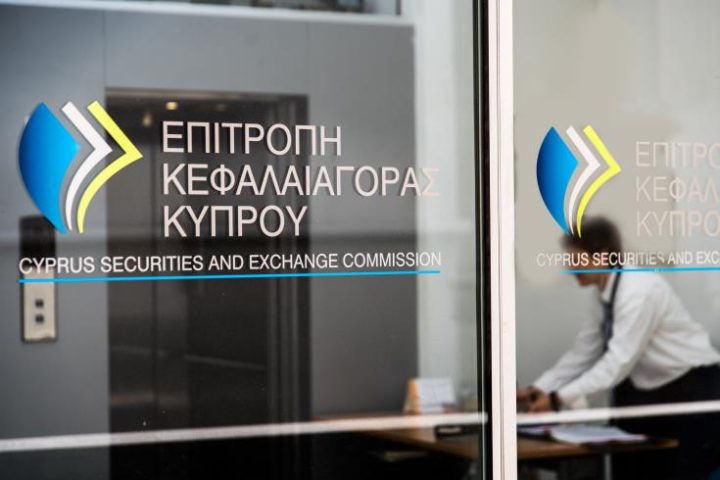Cypriot start-ups no longer have to rely on banks to obtain finance, as a ground-breaking crowdfunding platform offers local entrepreneurs an alternative way to raise capital.
In a first for Cyprus, Crowdbase, a crowdfunding platform on the island, announced the first-ever successful completion of an equity campaign for a Cypriot start-up.
Earlier this week, Crowdbase announced the first equity crowdfunding campaign in Cyprus, easyBoat.
The easyBoat campaign launched on October 17 for eight weeks raised €469,718, 188% of its minimum funding goal from 141 investors, 91% of which are Cyprus residents.
easyBoat is a start-up founded by Greek entrepreneurs Alexandros Nastos and Simos Lalagkos. It is the first online price comparison platform for yacht rentals.
“We’re trying to do for the business of chartering a boat or renting a yacht for holidays, what Skyscanner does for flights or Booking.com does for hotels,” said Sir Stelios Haji-Ioannou, the lead investor in easyBoat and founder of easyGroup and easyJet.
“The successful completion of the first-ever equity crowdfunding campaign in Cyprus is a historic occasion for the Cypriot entrepreneurial ecosystem,” Panayiotis Kakourides, Crowdbase’s Deputy Managing Director, said.
In comments to the Financial Mirror, Kakourides highlighted that making crowdfunding available to Cypriot start-ups will go a long way in reducing the apparent funding gap that exists, restricting the growth of innovative ventures.
Crowdbase is the first investment-based crowdfunding platform regulated by the Cyprus Securities and Exchange Commission (CySEC).
“Its mission is to provide an alternative form of financing to Cypriot start-ups, innovative Small and Medium-sized Enterprises (SMEs), and socially impactful real estate projects.
“With the first-ever campaign raising almost €500,000, crowdfunding’s prospects in our island certainly look promising,” noted Kakourides.
He said Crowdbase aims to offer another option to bridge the funding gap that has been a serious problem for small businesses for quite some time.
“Young and innovative businesses have traditionally struggled to secure the financing they need to survive or to expand for multiple reasons, including the relatively weak presence of Venture Capital funds and Angel Investor networks in Cyprus.
“It provides everyday people with the accessibility to invest in these promising businesses, with a minimum investment in certain campaigns at €100.”
As he argued, beyond the obvious potential for financial returns, crowdfunding allows individuals to access investment opportunities that were not previously accessible to them.
“In the past, investments in private companies were reserved for High-Net-Worth individuals and institutional investors, but with crowdfunding, anyone can invest in these early-stage companies from very low minimum investments”.
Kakourides highlighted a key incentive scheme by the Deputy Ministry of Research, Innovation and Digital Policy – the Certificate of Innovative Enterprise.
Investments by Cypriot tax residents in companies that successfully obtain this certificate are eligible for a 100% tax deduction from their total taxable income equal to the amount invested.
“Investments made through our platform in companies certified as innovative are therefore eligible for this tax deduction.
“We see that crowdfunding can be most effective for Business to Consumer (B2C) companies.”
He explained these companies give a chance to their users also to become investors in the company and advocates of the product/service, achieving exponential exposure through word-of-mouth.
“As far as the sectors go, our opinion is that crowdfunding is quite sector-neutral, but currently, there is a tendency for tech companies to raise the most through crowdfunding campaigns.”
Kakourides said there are four main types of crowdfunding.
Common shares
“Equity crowdfunding allows individuals to invest directly into a private company in return for common shares.
“Debt crowdfunding allows individuals to act like a bank by lending money to a company, expecting to receive it back with interest”.
A third type is rewards-based crowdfunding, where backers receive different non-financial benefits in exchange for their money, such as a thank-you note or a final product.
Lastly, donation-based crowdfunding is where individuals donate money to specific causes and charities.
“The way we work at Crowdbase is as follows: A business wanting to raise capital approaches us for a potential crowdfunding campaign.
“We perform an extensive due diligence process to verify the validity of information and the project’s viability.”
The next step would be to work alongside the company’s management to finalise the specifics of the campaign, including but not limited to the valuation, the amount to be raised, and the minimum investment.
“We then create and launch the crowdfunding campaign on our platform, where investors can find all relevant information they need before taking their investment decision, including the Key Investor Information Document (KIID), the Pitch, the Team behind the project and more.”
While the campaign is live, investors can invest through the platform via debit/credit card or bank transfer.
Once the campaign successfully closes, the securities are issued in each investor’s name, and the funds raised are transferred to the company.










